Coping With Eco-Anxiety: How Can We Push Through?
IMPORTANT: This is a post about eco-anxiety, a type of anxiety recognised by professional psychologists. However I am a writer, not a mental health expert. If you are experiencing overwhelming anxiety, PLEASE seek professional help.
That horrible clenching of the guts every time you turn on the news, or pick up a paper and read about some new environmental disaster has a name – it’s called eco-anxiety. Anyone who cares about the fate of the planet and humanity has or will feel it at some point. Here are a few tips on how to push through eco-anxiety and channel it for the greater good.

… what animal fouls its own nest?
Eco-anxiety. Climate grief. Climate anxiety.
Call it what you want – it all means the same thing.
| Eco-anxiety: a feeling of panic and anxiety, triggered by news of climate-related catastrophes, such as wildfires, cyclones, melting polar ice caps and rising sea levels. |
You hear about the permafrost melting in the Arctic and places like Greenland and Antarctica shedding ice at an alarming rate.
You read reports of the Amazon being burnt to a crisp, the smoke choking nearby municipalities such as Sao Paulo.
We’re said to be facing the sixth mass extinction in the history of our planet, with species dying out 1000 times faster than they did previously.
We’ve been told we have twelve years to keep rising temperatures level at 1.5C, although we already face a future of drought, fires and floods, which will throw millions of people into extreme poverty.
Some scientists believe it’s too late to stop global warming.
Closer to home, the absolutely breath-taking Great Barrier Reef is dying, while the Australian Government is pushing to allow foreign owned company Adani to open a massive coal mine nearby, speeding along its eventual demise.
And South Pacific islands such as Kiribati will cease to exist by 2100, due to rising sea levels.
It’s a lot to take in.
Read more: Everything You Need to Know About Travelling Zero Waste

Truth be told, I’ve been experiencing eco-anxiety since the 2019 Australian Federal election in May.
It was heralded as a “climate election”, with this said to be the pressing issue on voter’s agenda.
The current, conservative, bunch of climate-deniers that had been in power for years, were tipped to be thrown out on their tails.
Our second major political party, who were promising much stronger action on climate were supposed to win by a landslide.
This sadly, wasn’t the case.
The conservatives were able to stay in power. It felt like not only the Labor party, but the planet had lost.
Like our future was lost with it.
It was a blow.

Shortly after the election, I went into a hibernation of sorts.
I was angry. I’d look around at people, completely absorbed in their mobile phones and think: Our planet is in peril. Don’t you know? Don’t you care?!
Making an effort to do things like reduce my plastic use suddenly seemed pointless.
I stopped writing about sustainability and the environment on this blog, working on upping my backyard tourism content instead. I mean, kinda helpful but then in the greater scheme of things… Hrmm.
Honestly, I’ve been trying to write this post on eco-anxiety for three months now. The words just wouldn’t come.
Something I’ve realised, is that this period of switching off has been beneficial. I didn’t turn it to a plastic-guzzling, environment-hating dropkick.
Instead, I recharged. I did what I could in the background. And now, I’m rejoining the frontline.
So, if you find yourself experiencing any kind of eco-anxiety, here are some tips for management and coping.
Go to a climate grief workshop
If you’re really having issues with eco-anxiety, consider attending a climate grief workshop.
You’ll be in the company of trained professionals, who will be able to help guide you through your anxiety and give you the tools you need for coping.

Start reading and watching
The cheapest and most effective way to further your education about climate change? Reading books. Watching documentaries. Becoming more informed about the world and the repercussions of our decisions.
Here are some books worth reading – please consider borrowing them from the library or buying from your local, independent bookstore.
Read
The Sixth Extinction by Elizabeth Kolbert: This is the first book I read about climate change and it made me very upset, but also propelled me into beginning my war against plastic. Kolbert is a well-known climate journalist and in this book, she describes how humanity are causing the sixth biggest mass extinction in the history of the planet.
The Decade We Could Have Stopped Climate Change by Nathaniel Rich: This will make you super mad if you’re of my generation – the decision to do nothing to prevent climate change may have been made before you even began to exist. This is US-centric, but it describes how political figures did not provide the leadership needed to navigate the crisis we now find ourselves in. You can read the original article here.
Nudge: Improving Decisions About Health, Wealth, and Happiness, by Richard H. Thaler and Cass R. Sunstein: This book is about making more informed decisions about what to buy or eat, ethical financial investments and overall tips on looking after the planet.
Be the Change by Gina Martin: A guide for the modern activist, particularly in navigating social media. Read a further review on Be the Change here.
This Changes Everything: Capitalism vs. the Climate by Naomi Klein: How capitalism, not carbon is to blame for climate change, written by an activist on the frontline.
Dark Emu by Bruce Pascoe: This book is making waves in Australia at the moment, as it describes the true history of Aboriginal agricultural history in Australia. It’s fascinating stuff. See Pascoe’s Ted Talk for more info.
And don’t forget blogs! I have a roundup of some of my favourite sustainable travel bloggers here.

Watch
2040 (2019) – a Melbourne-made, more uplifting type of documentary, of what the world could look like if we banded together for the greater good. Watch here.
Anthropocene (2018) – covers our massive reengineering of the planet and the repercussions of this, including the devastated Great Barrier Reef. Learn more here.
Blue (2014) – learn about the impact we are having on our world oceans and the effect this is having on land. See more here.
Cowspiracy (2014) – this is a deep-dive into the damaging history of animal agriculture, which may turn you off beef forever (not a bad thing, IMO). Our livestock industry is responsible for more environmental damage than you may have imagined. Watch here.
Gringo Trails (2013) – one for travellers, which examines the impact of mass tourism on developing countries. Are we helping the world by travelling or are we just making things worse? See more here.
Get educated
Craving more knowledge? Perhaps it’s time to further your education, giving you the tools you need to cope with the future.
In 2018, I somewhat jokingly wrote a post about surviving a zombie apocalypse, but there are greater implications within it.
Since then, I’ve been making a greater effort to strip things back to the basics and make myself more handy overall, building upon a practical skillset.
Your own learning? Well, you can always go to University and take up a degree or Masters in Environment, but do look for short courses around your city and neighbourhood.
Many libraries run courses in basic urban farming, bee keeping and such, as do local community groups.
If you’re based in Melbourne and want to learn more about gardening and food management, CERES is a good place to start.

Stop watching the news
Or rather, be more informed about where you get your news from.
I am continually frustrated by Australian news, which is less about what is happening in the world and more “man saves cat stuck in a tree”.
I wish I were exaggerating, but no. I have seen news stories on precisely this.
It is important to keep abreast of what is happening globally, but take in your news with a grain of salt.
I look to publications like The Guardian, The Monthly and SBS here in Oz, sometimes our public broadcaster the ABC too, but I don’t find it to be as balanced as it once was.
Find the news to be too doomy and gloomy? Check out The Happy Newspaper, which celebrates the good in the world.
Or, subscribe to Future Crunch, who send out a fortnightly round-up of innovative and positive scientific and technological advancements… those you probably won’t hear about in the 6pm.
Don’t be afraid to take breaks from being ‘informed’, when need be. You don’t need to be switched on, all the time.
Grow your own
I have found surrounding myself with green things to be an invaluable source of comfort.
Not having a garden is a challenge, but I’ve managed to fill my flat with plants – some practical, some purely ornamental. I’ve purchased a few but more and more, I’m cultivating them myself.
Looking after my plants gives me purpose and they never fail to make me happy.
Fancy growing some green babies of your own? I’ve found the book How Not to Kill Your Houseplant to be particularly helpful.

Make a greater effort to get out into nature
Likewise, get out in nature, whenever you can!
I truly believe our disconnect from greenery is largely to blame for any apathetic feelings we may have towards the natural environment.
It’s a bit hard to escape nature in Australia thankfully, as even our most urbanised cities are teeming with it.
Whenever you get the chance, make the time to get out and explore.
Don your hiking boots and go for a hike or bush walk. Or even wander around your neighbourhood, sans headphones and take in the sounds of the life around you.
Birdsong over Beyonce, any day.
Get involved with your local community
Likewise, get involved with community groups. I’ve made a real push towards doing this this year and it’s led to the meeting of many like-minded and wonderful people, doing all kinds of interesting things.
Gardening groups, biking enthusiasts, repair cafes, sharing sheds, conservation groups, tree-planters, bird-watchers. There are so many options out there.
This in turn can lead to support networks – you can hold each other up, when the going gets tough.
One word of warning – don’t jump onto too many things at once, as tempting as it may be. You don’t want to burn out.

Embrace activism
Activism comes in many forms.
It can be as small as writing letters to your local government representatives and big businesses, urging them to change.
You can create and sign petitions and hold companies accountable on social media.
For example, I know of a local group who gather together once a month to drink beers, commiserate and write to their local MPs, encouraging them to take further climate action.
Or, you can jump in with both feet into the massive marches.
Think big scale demonstrations, hundreds of thousands of people rallying together and walking for climate justice, for humanity, for the hope of a better future… or maybe just even, a future.
Want to get involved?
Here are some groups worth checking out.
>>> Women’s Global Call for Climate Justice – this comprises of a global group of women’s groups and organisations, rallying together to address climate change. Read more here.
>>> 1 Million Women – another women’s group (we get things done) building a ‘lifestyle movement’. Find out what this entails here.
>>> The Extinction Rebellion (XR) – the current rockstars of the global movement for climate justice. They’re doing big, brave things. Look for your local chapter here.
>>> 350 – this group has been around for a long while, pushing to end the use of fossil-fuels. Learn more here.
Don’t forget the most important fight of all. We must prevent protesting from becoming a criminal activity, which is an alarming and growing trend around the globe.
Remember, protesting is a democratic right. It is meant to be an inconvenience.
Change the way you travel
I made a pledge this year to refrain from travelling overseas. Some travel blogger, I know.
I feel guilty about how much I’ve flown in the past and decided now is the time to drastically cut back.
This has obviously changed the way I travel. I see so much more of my own country, my state and my city.
There’s no doubt that travel can enrich you in many ways, but definitely consider how you travel and how much. Look at ways you can improve.

Donate your time and money to groups who deserve it
Volunteering your time can be another way to get out of your head and give back.
I recommend divvying your free hours between one-off, bi-yearly or annual events and if you can, helping out with a local organisation.
Look where your passion lies and volunteer accordingly. I care about animal and plant conservation, so I help out with clean-ups and surveys.
Long-term, I’m involved with a sustainable tourism group and a native gardening organisation.
I’d love to do more, but I do work full-time, dabble in freelance work and run this blog. I need time for reading and should probably see my boyfriend, once in a while.
Likewise, give money to causes where you can, although I’d recommend being discerning about this.
Do some research beforehand and give it to groups that truly need it.
Look after yourself
Think of the safety demonstrations on planes. In case of emergency, you strap your own oxygenating face-mask on, before helping out those around you.
Same idea. You can’t help the planet if you’re not helping yourself, particularly if you’re suffering from eco-anxiety.
My fellow sustainability blogger Travel for Difference has an excellent article on looking after yourself, so that you can help look after the planet.

Spend time with and value your friends and loved ones
Remember the things that are important. Ultimately, it usually comes down to the people you care about – your family, your friends, your significant other, your pets.
Spend time with them. Confide in them. Mope with them. Take action together.
Don’t give up hope
Lastly, don’t let your eco-anxiety consume you. There is hope.
For all our flaws – laziness, apathy, greed and indifference – we are an interesting species (perhaps because of these reasons, in many ways).
One coping mechanism I’ve been throwing myself into of late, is art. I’ve been writing about it a lot lately, on this blog.
Humanity is capable of creating beautiful things and has an often twisted sense of humour.
Of course, an early argument in the fight against climate change was that we would adapt, as we have throughout history. Why bother making the effort to change now?
This is a bit of a stupid thought, but there are kernels of truth in it. We are if anything, resilient.
Maintain hope. Don’t let the bastards get you down. Fight the good fight. And take care of yourself.
Do you have any tips on managing eco-anxiety? I’d love to hear them. If you like this post, please share it. For more like this, sign up to the newsletter or follow along on Facebook.


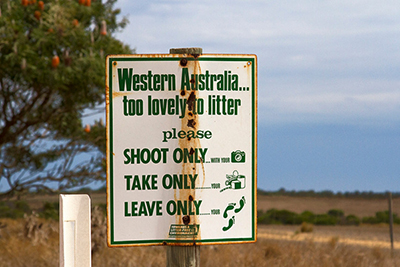
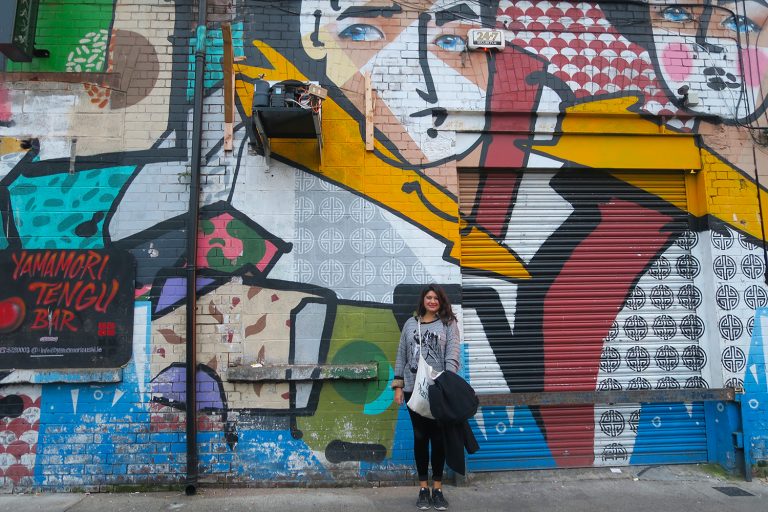
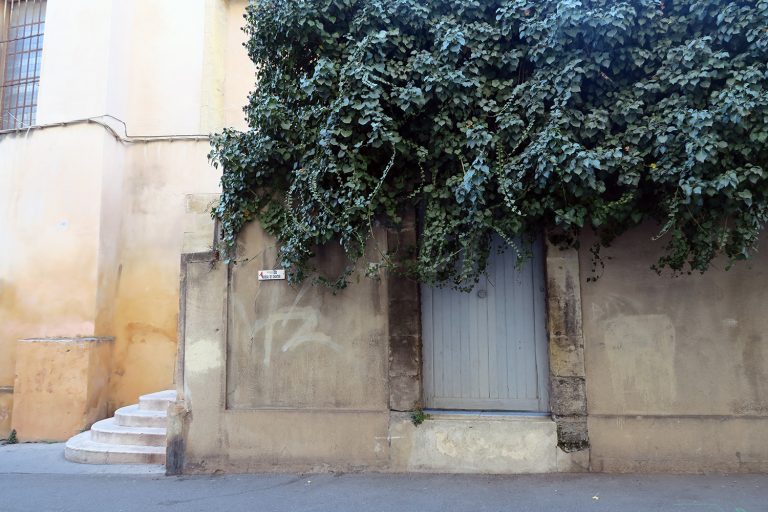
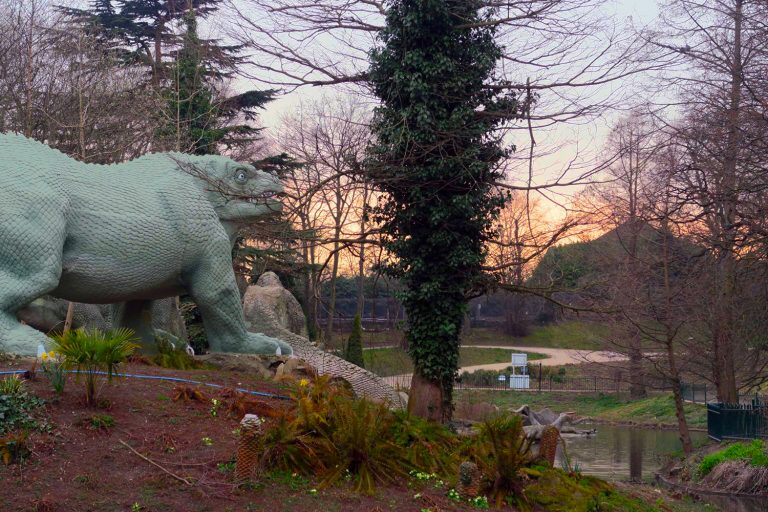

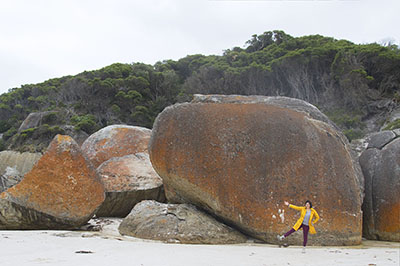
I think it always happens to me, I even get depressed, I’m really affected by bad ecological news, I moved to Mexico and I have a business that is not at all ecological, so I opted to buy a few acres of land and reforest, this way I feel a little less guilty, even so, I feel it is not enough.
Yes! I always get anxious whenever I read or hear this kind of news. I didn´t know it was a thing tho. For the past years, I´ve tried a few things to reduce my impact on earth but I always feel like is not enough.
Thanks for the contribution, I won´t lose hope in humanity yet.